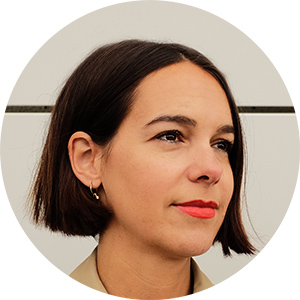
Why you need to know about flatness if you do business with Dutchies
December 4th, by Claudia Müller
Why should you know about flatness when doing business with Dutchies? What does flatness bring? Flatness comes with no mountains but with an overwhelming sky. The Netherlands is flatland and lowland. If you are working or doing business with Dutchies, be ready for the great wide open.
Flatness and extroverts

Do you remember walking on the beach and looking at the horizon? What kind of feeling did the view evoke? Did you like it, or did you feel lost? As Shigehiro Ohishis´study shows, extroverts are more likely to choose flat and open terrain whereas introverts choose for more mountainous environments to live in. Assuming that Dutchies are all extroverts would be the logical consequence of this, but the preference for open or hilly spaces is not the only determining factor. Culture, upbringing, education, and social factors are also part of the identity shaping game.
The wide-angle shot versus long-term thinking
Think of a wide-angle shot of a Moon party. People are dancing in and on ecstasy, embracing each other, experiencing and exploring the borders of consciousness. Kissing, hugging, shouting, crying, running, swimming, and floating in the water. It´s like in the movie Fear and Laughing in Las Vegas but then in the scenery of a Dutch beach. So, could you argue that the wide-angle shot implicitly stands for creativity, no boundaries, and experiment? Yes. And what about the view on the horizon in this wide-angle shot? Does it stand for visionary and long-term orientation? Yes, as Dutch people are pragmatic by nature. They are flexible and adapt easily to get ready for the future. This is, of course, a very general statement that is more interesting when put in comparison, for example, with the big neighbor, Germany. If you want more insights about that, check out our ebook about Germans psychology. If you are interested to know more about long-term orientation, check out this website.
Why a polder could be a reason for slow decision making
What if the water is your enemy and you want to survive? You have to think of creative solutions. The Netherlands is flatland and lowlands – only 50% of the country is above sea level. To escape floods, water was pumped away, and new land was created. The polder, a man-made land, was born. But to create a new ground and protect the population from the water, people from different places had to work together. Sitting at one table to work things out is therefore named polderen.

In the 80s, this way of negotiating found its way into politics. It is known as the Poldermodel, the consensus-decision making. You can still find this practice in a lot of companies. So if you think decision making is slow, you can now understand why. Before any decision can be taken, every member that is involved is asked to give their opinion. No matter which function they have in the hierarchy.
The trading country
Negotiating is in their veins, as we got to know with the polder model. But how did the Netherlands become one of the best trading countries? It mostly has to do with location and survival instinct. The Netherlands is surrounded by water and lies at the axis of the Northern Countries. In the Middle Ages, the land and its people were poor; barely any natural resources could be found, and nearly everything had to be imported. But the geographical setting with the Rhine, the Meuse, and the sea saved the people who started trading out of necessity and probably basic instinct. To trade meant surviving. Since the 17th century, this relatively small country reached out to the rest of the world. Merchants traveled the world to look for new products and markets. The colonization started and made the small country one of the richest in the world. So if it comes to negotiations, keep in mind that Dutchies are used to trading since they exist. It’s part of their culture.
Flatness and creative space

If you walk on the beach, with the dunes in the back and the sky above the head, you might feel inspired. Dutch people are known for innovative ideas. They are experts in water management, infrastructure, and agri-food. Also, TV-programs like The Voice or Big Brother are known all over the world and made in Holland. The Silicon Valley of Europe is in Eindhoven, where high tech giants such as Philips and ASML collaborate to develop new concepts and technologies.
It is known that open spaces bring peace and also create space in your head. Thoughts are more focussed, and you can elaborate on them without being distracted. So wide open flatland is inspiring and is even enabling creativity. So be prepared for a bunch of people that will blow you away with innovative and unconventional ideas.
Together alone in the great wide open
So what does flatness bring? Extroversion, consensus-decision making, trading, creativity, and a lot of water. But isn’t there a dimension missing as there are no mountains? Isn’t there a lack of depth as there is no height? So is Dutchness in the end just flat, kind of mediocre, just average? You could argue that Dutch people don’t like to show off. They like to be humble, not to stand out but to stand together.
But the Netherlands is also an individualistic society, so people like to do it their way and not like others. It’s about doing it together, but in a way that everybody is ok with. Alone and together. On the beach and in the office. If you are up for it, they take you into the great wide open.


Claudia Müller
Claudia is the co-founder of Mango Kollektiv. If you want to know more about her, click here.
If you want to find out how Mango Kollektiv’s culture-specific approach to consulting businesses can help you, click here.
